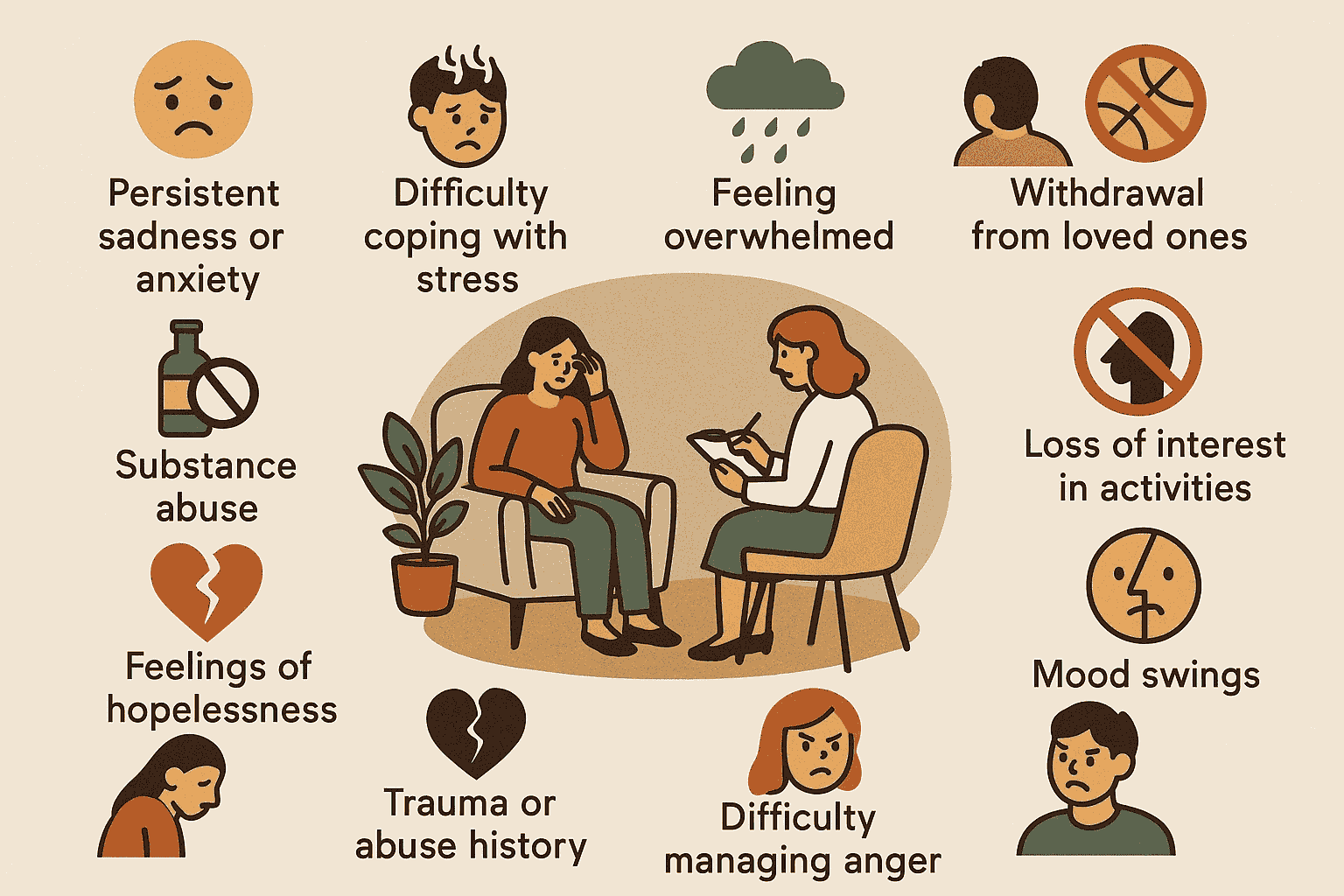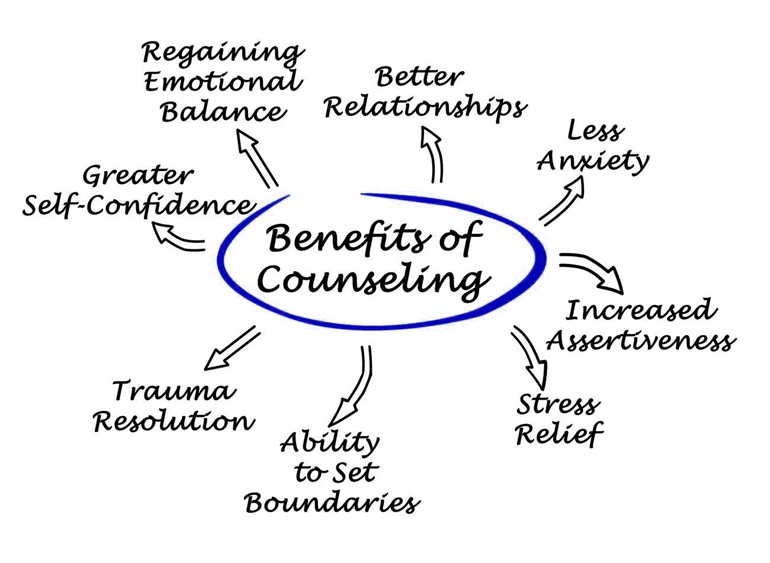Recognizing the Importance of Mental Therapy for Teenage Development and Health
Mental therapy plays an important role in the development and health of teenagers. It addresses a variety of psychological health and wellness problems that can hinder their growth. With therapy, adolescents can learn necessary coping techniques and boost their emotional knowledge. This procedure promotes strength, permitting them to far better browse life's difficulties. However, numerous still be reluctant to engage in conversations regarding psychological health. Exploring the reasons behind this hesitation reveals deeper understandings into the adolescent experience.
The Effect of Adolescent Mental Wellness on Overall Growth
The interplay in between teen psychological health and wellness and overall growth is extensive and diverse. Throughout the crucial stage of adolescence, people undergo significant physical, psychological, and social changes that form their identity and future. Psychological health plays a crucial function in this process, affecting scholastic performance, connections, and self-esteem. Favorable psychological health and wellness promotes durability and adaptability, making it possible for teens to browse challenges properly. On the other hand, mental health and wellness issues can hinder cognitive features, interrupt social communications, and hinder emotional law, causing a waterfall of developmental obstacles.
The environment in which teenagers expand-- encompassing household dynamics, peer influences, and social expectations-- communicates with their psychological wellness, more complicating their developmental trajectory. Comprehending the relevance of psychological health in this stage is crucial for advertising healthy and balanced development and guaranteeing that adolescents can thrive, both during their developmental years and past. Focusing on mental health and wellness assistance can considerably enhance their overall development and future potential.
Common Mental Health Issues Faced by Teenagers
While maneuvering with the intricacies of adolescence, many teens run into a variety of psychological health and wellness issues that can substantially influence their lives. Anxiousness problems prevail, frequently characterized by too much fear or fear that hinders everyday activities. Anxiety is one more common concern, materializing as consistent unhappiness, loss of rate of interest, and difficulty in operating. In addition, behavior issues, such as oppositional bold problem, can cause disputes with authority numbers and a struggle to follow societal standards. Eating problems, consisting of anorexia nervosa and bulimia, may develop as teenagers face body image and societal stress. Lastly, drug abuse can establish as a misguided effort to deal with emotional distress. These psychological wellness difficulties, if unaddressed, can prevent academic performance and social connections, underscoring the requirement for recognition and support within this susceptible age group.
The Duty of Treatment in Building Coping Techniques
Treatment plays a significant role in outfitting teenagers with efficient coping approaches to browse their mental wellness challenges. Through organized sessions, specialists help teenagers determine and understand their feelings, cultivating self-awareness. By utilizing various strategies such as cognitive-behavioral therapy, teens discover to test adverse thought patterns and replace them with constructive ones. This process allows them to create healthier reactions to stressors.
In addition, treatment gives a safe setting for teenagers to practice these techniques, helping with the shift from concept to real-life application. Role-playing and circumstance evaluation enable them to rehearse coping mechanisms in a supportive room. As young adults deal with unique stress-- scholastic demands, social characteristics, and identity exploration-- having individualized coping strategies comes to be crucial. Eventually, treatment not only addresses immediate problems however additionally imparts lifelong abilities that allow teenagers to manage future challenges, advertising overall mental health and durability in their development.
Cultivating Strength and Psychological Intelligence Via Therapy
How can therapy support resilience and psychological intelligence in young adults? Treatment offers a secure environment where teens can explore their behaviors, emotions, and ideas. With assisted discussions and tasks, specialists assist teenagers recognize and understand their sensations, fostering psychological understanding. This recognition is a cornerstone of emotional knowledge, allowing them to empathize with others and handle interpersonal relationships successfully.
Additionally, therapy equips young adults with devices to navigate life's difficulties, advertising durability. By addressing past traumas, disappointments, and stress factors, they find out to develop coping systems that equip them to face difficulty. Specialists frequently motivate goal-setting, which instills a sense of function and success.
As young adults practice these abilities in treatment, they come to be more skilled at handling uncertainties and setbacks (Individual Therapy Toronto). Inevitably, this nurturing of strength and psychological intelligence prepares them for the intricacies of adult life, enhancing their general psychological wellness and health

Encouraging Open Dialogue About Mental Wellness in Teenagers
What approaches can effectively visit the website foster open dialogue about psychological health and wellness amongst teens? Producing a secure and supportive environment is fundamental. Educators and moms and dads ought to motivate discussions by normalizing discussions about mental health and wellness, emphasizing that it is a significant facet of overall well-being. Energetic listening plays a vital function; grownups should be non-judgmental and mindful when teenagers share their problems or sensations.
Integrating mental health and wellness education and learning into school educational programs can additionally facilitate open discussion. Workshops, peer support system, and psychological health and wellness understanding campaigns can encourage teenagers to express themselves much more openly. Furthermore, using social networks platforms can be helpful, as they are typically where teenagers really feel most comfortable interacting. By cultivating an environment of trust and visibility, grownups can assist young adults recognize that reviewing psychological health and wellness is not just appropriate however needed for their advancement and psychological wellness.
Frequently Asked Concerns
Just How Can Parents Identify Signs of Mental Wellness Issues in Teenagers?
Moms and dads can recognize indicators of psychological health and wellness issues in teens by observing changes in behavior, mood swings, withdrawal from activities, decreasing academic efficiency, changes in sleep or hunger, and sharing feelings of pessimism or anxiety.
What Sorts of Treatment Are A Lot Of Effective for Teens?
Cognitive Behavior Treatment (CBT), Dialectical Behavior Modification (DBT), and team therapy are among the most efficient kinds for teenagers. Individual Therapy Toronto. These strategies promote coping abilities, psychological guideline, and provide peer support, necessary for teenage psychological health and wellness
How Can Treatment Support Academic Efficiency in Teenagers?

What Should Teens Expect Throughout Their Initial Therapy Session?
Throughout their initial therapy session, teens can anticipate a welcoming atmosphere, an intro to the specialist, discussions regarding their problems, and developing objectives (Individual Counselling Toronto). Privacy and the restorative procedure will certainly also be discussed to foster convenience and trust
Just How Can Teens Find a Therapist That Matches Their Requirements?
Young other adults can find an appropriate specialist by seeking referrals from trusted grownups, looking into on-line directories, considering specialties, and scheduling preliminary appointments to evaluate Individual Teen Counselling compatibility and interaction styles, eventually making certain an encouraging restorative partnership.
